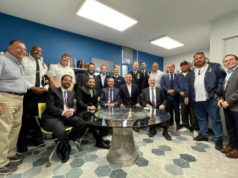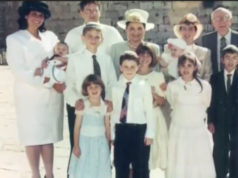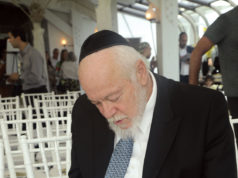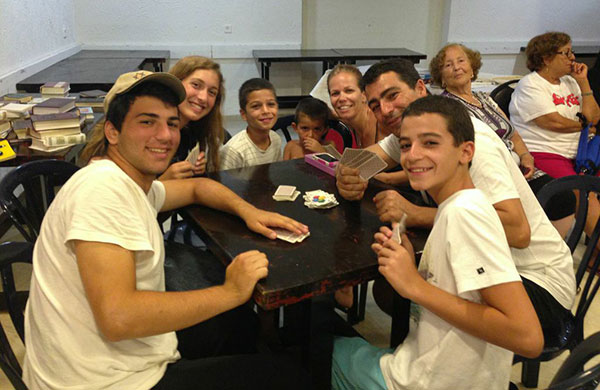
I anticipated my ILEAD trip to Israel for months—finally the day came. Upon our arrival, we immediately attended the funeral of the three Israeli teenagers that were found a day earlier—a very unexpected way to begin our trip. Two weeks into the trip, our head advisor, Shiloh Plesser, gathered the 40 members of my group together to emphasize the dangers that the country was facing. He explained that over 100 rockets were already fired in the South, and luckily for us, we were high up in the North, therefore clear from the danger.
A few nights later, while we were based at Rosh Hanikra, which borders Lebanon and the Mediterranean, a group of us gathered together to watch Germany play Argentina in the World Cup championship. Enthralled by the game, we were startled when we heard a knock at the door at 2 am, and then the piercing sound of a siren. The adrenaline rush that came over me was a sensation I had never experienced before. We hurried down the stairs, leaving everything behind, because in that moment, the only concern we had was for our lives. As I ran to the shelter, the siren grew even louder. I felt as if the rocket was coming straight toward me. We all arrived safely in the shelter, many of us disheveled and in disbelief. Typically unaffected, I had a flood of feelings come over me. Suddenly, the war became a shocking reality.
The next night, the siren went off around 11 pm. This time, we were all prepared for it, so the scramble for the shelters was a little more under control. We were all safe and sound, but had a clear understanding of what the Israelis go through every day.
This experience incited within us an idea—to bring families that were in bomb shelters all day—up North for a few days of relief and relaxation. Four groups were created. We named ourselves Kipat Tikvah (Dome of Hope). The first group handled raising money to fund our project. They did a phenomenal job—raising around forty-thousand dollars. The second group had to figure out who to bring, and how to get in contact with them. Being a part of that group, and being able to speak Hebrew fluently, I spoke to the municipals of Sderot, Ashkelon, Eshkol and Sde Avraham.
Each municipal linked me with the proper resources, and within the hour, families from Sde Abraham and Ashkelon were calling to speak with me. Eventually almost 50 families came up North and spent the weekend with us.
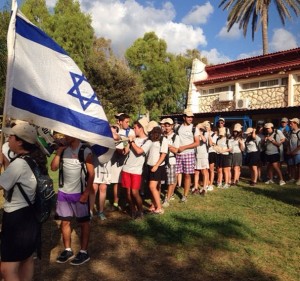
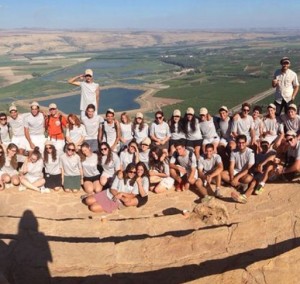
During the five days of the program, we went for lunch in Aco with the families, made a carnival for the kids, danced with them, and forged relationships with everyone. Each family greatly appreciated what we did for therm, and two families even gave me their contact information in order to keep in touch with them. These are brave, incredible families that face unthinkable dangers on a daily basis.
Our trip revolved around the war, and doing what we were able to do to help. We visited the family of an Ethiopian Jewish soldier who fell during the war, and went to the funeral of a soldier named Yuval. The unity of the Jewish people was something that I had never seen before. Families, who didn’t even know the fallen soldier, were not just tearing up, but crying, as if it were their own child.
The most difficult part of my trip was not our eight hour hikes, or the little sleep we received, but it was on Har Hertzel. As we listened to a lecture about the famous heroes that were buried there, like Yoni Netanyahu and Roi Klein, I witnessed grave diggers preparing a fresh grave. They knew a soldier would be killed, and started working in advance. At that moment, I prayed to Hashem that these men would find no need for that empty grave.
Our trip reached its end a few days early because our counselors were called up as reservists to protect their country—our country, a country with limitless strength, faith in Hashem and solidarity—that I was blessed to experience during the trip of a lifetime.

